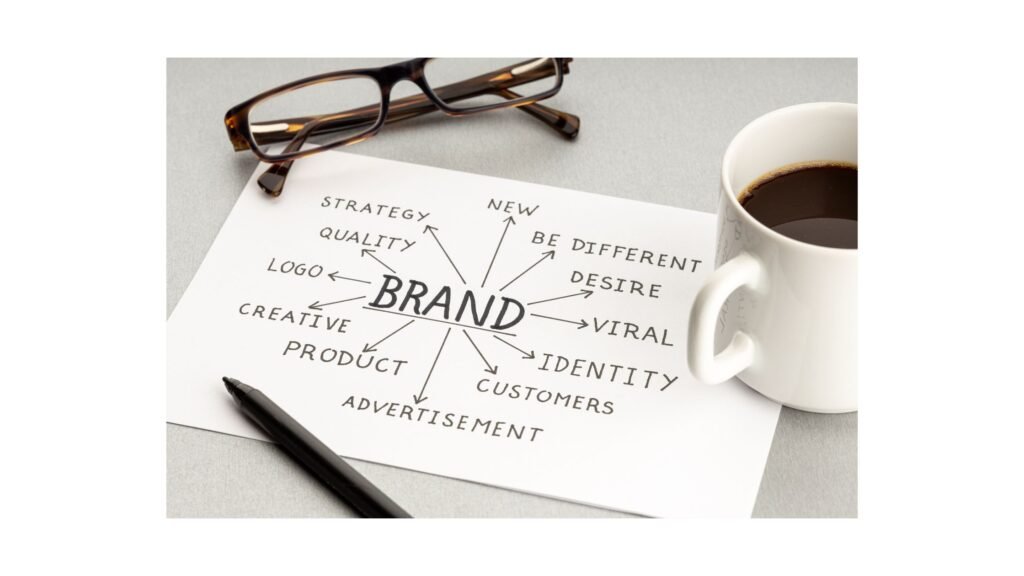
Companies consistently explore innovative approaches to capture and retain a loyal customer base in today’s fiercely competitive business landscape. “Why Is Brand Extension A Popular Marketing Strategy?” Because brand extension, in recent years, has emerged as a notably popular strategy. This marketing approach revolves around harnessing the equity and reputation of an established brand to introduce new products or services, whether within related or unrelated categories. As a potent instrument, brand extension empowers companies to broaden their reach, venture into new markets, and fortify customer loyalty.
This blog post will explore why brand extension is a popular marketing strategy, providing insights into its benefits, potential pitfalls, and real-world examples.
What Is A Brand?

A brand is much more than just a logo, a name, or a product; it is the essence of a company’s identity and the perception it creates in the minds of consumers. At its essence, a brand embodies the distinctive combination of qualities, values, and promises that set a business apart from its competitors. It is a potent symbol that conveys the company’s personality and how it wishes to be perceived.
One crucial aspect of a brand is its visual identity, which includes elements like logos, color schemes, and typography. These visual elements help consumers recognize and remember the brand. They are the first point of contact and often serve as the initial impression of a company.
However, a brand goes far beyond aesthetics. It encapsulates the company’s mission, values, and the emotional connection it seeks to establish with its audience. A strong brand resonates with its target customers personally, fostering loyalty and trust. It evokes specific feelings and associations that influence consumer choices.
Effective branding is about consistency and authenticity. It involves delivering on the promises made through marketing and customer experiences. When customers consistently have positive encounters with a brand, they are likelier to become loyal advocates who spread the brand’s message through word-of-mouth and social media.
What Is A Brand Extension?

A brand extension is a marketing approach where a company leverages its established brand’s reputation and recognition to introduce new products or services related to the core brand. Instead of creating an entirely new brand for a product in a different category, the company uses the credibility and equity of the existing brand to enter a new market.
Brand extensions can take various forms, such as line extensions or category extensions:
Line Extension
In a line extension, a company introduces new products or variations within the same product category that the brand is already known for. These new products share the same brand name and are typically seen as natural additions to the existing product line. For example, a well-known soft drink brand may introduce new flavors or packaging sizes within its beverage line.
Category Extension
A category extension involves expanding the brand into a completely different product or service category while maintaining the original brand’s name and identity. This can be riskier, but it allows the brand to enter new markets based on its built trust and recognition. For instance, a famous sportswear brand might extend into the fragrance market, leveraging its brand’s association with active lifestyles.
Why Is Brand Extension A Popular Marketing Strategy?
Brand extension is a popular marketing strategy for several reasons, as it offers numerous benefits for businesses looking to expand and leverage their existing brand equity. Here are some key reasons why brand extension is widely used:
Leveraging Brand Equity
Opting for brand extension as a marketing strategy is underpinned by leveraging existing brand equity. Established brands have already cultivated trust and recognition within their target audience. Through brand extension, companies tap into the positive associations and goodwill linked with their current brand, Enabling the rollout of novel products or services with a foundation of trust and familiarity.
Reduced Risk
The allure of brand extension lies in its capacity to mitigate risks associated with launching entirely new brands or products. Creating and establishing a new brand from scratch is a venture fraught with uncertainties, time constraints, and substantial expenses. Brand extension alleviates this risk by capitalizing on the trust consumers place in a brand they are already familiar with, significantly increasing the chances of success for the novel offering.
Cost Savings
One of the critical advantages of brand extension is the potential for substantial cost savings. Developing a new brand identity, including logos, slogans, and various marketing materials, can be costly. The brand extension allows businesses to circumvent these expenses by utilizing the existing brand’s identity and assets, resulting in more economical and efficient market entry.
Cross-Selling Opportunities
Brand extension opens the door to valuable cross-selling opportunities for companies. A company can seamlessly cross-promote existing and new products or services by extending the brand. This synergistic approach not only has the potential to boost sales but also contributes to fostering customer loyalty. Satisfied customers of one product from a brand are more inclined to explore and trust other offerings from the same brand.
Faster Market Entry
Introducing a new brand or product necessitates extensive market research and consumer education, which can be time-consuming. Brand extension accelerates market entry by capitalizing on consumers’ familiarity with the original brand. This pre-existing brand recognition streamlines the introduction of new offerings, saving valuable time and resources.
Competitive Advantage
A robust and well-established brand can be a formidable competitive advantage, especially in saturated markets. Brand extension becomes a strategic tool for companies To set themselves apart and secure a competitive advantage. The trust and positive associations built over time contribute to brand loyalty, setting the extended brand apart from competitors.
Portfolio Diversification
Brand extension allows businesses to diversify their product or service portfolio by extending their brand into related or complementary categories. This strategic move helps reduce dependence on a single product or market segment, effectively spreading risk. Diversification through brand extension enables companies to adapt to changing market dynamics and enhances overall resilience.
Challenges And Pitfalls Of Brand Extension

While brand extension offers numerous and is not without its challenges and potential pitfalls, careful planning and execution are essential to ensuring a successful brand extension. Some common challenges include:
- Dilution of Brand Image: Improper execution of a brand extension can result in the dilution of the original brand’s image. If consumers perceive the new products or services as unrelated or of inferior quality, it poses a risk to the overall brand equity. Careful consideration and strategic alignment are essential to prevent any negative impact on the established brand’s image.
- Cannibalization: Introducing a new brand extension carries the inherent risk of cannibalizing sales from the original product or service, mainly when they compete in the same market. This phenomenon could potentially divert consumer attention and purchases from the established product, necessitating a delicate balance in positioning and marketing strategies to avoid internal competition.
- Overextension: Extending a brand across too many categories or markets can overextend a company’s resources and weaken its core business. Striking the right balance between brand extension and Preserving the authenticity of the fundamental brand is essential crucial. Avoiding overextension ensures that the company can sustain its focus and effectiveness in delivering value to consumers.
- Market Research: Inadequate market research poses the risk of poor product-market fit, emphasizing the importance of understanding consumer preferences, market dynamics, and competitive forces in the target category. Thorough market research is essential to align the brand extension with the needs and expectations of the target audience, reducing the likelihood of missteps in product development and positioning.
Real-World Examples
Several real-world examples illustrate the effectiveness of brand extension as a popular marketing strategy:
- Google: Originally known for its search engine, Google has successfully extended its brand into various products and services, including Gmail, Google Maps, Google Drive, and the Android operating system.
- Disney: The Walt Disney Company, renowned for its animated films, has extended its brand into theme parks, television networks, merchandise, and cruise lines.
- Nestlé: A food and beverage company, Nestlé, has extended its brand into the health and wellness sector with products like Nestlé Health Science and Nespresso coffee machines.
- Nike: A leader in athletic footwear and apparel, Nike extended its brand into the digital realm with the Nike+ app and hardware, aligning with its commitment to promoting an active lifestyle.
Conclusion
Why is a brand extension a popular marketing strategy? This question has been answered by the myriad advantages it offers to businesses seeking growth, market presence, and customer loyalty. Leveraging the equity of an established brand, reducing market entry costs, strengthening customer relationships, diversifying revenue streams, and gaining a competitive edge are the pillars of this strategy. However, while the benefits are clear, navigating the challenges with precision and care is essential.
The world of brand extension is dynamic and ever-evolving, with countless success stories and lessons learned. We would love to hear your thoughts on this powerful marketing strategy.
Have you experienced the effects of brand extension firsthand, or do you have questions about its application? Provide your perspectives and participate in the discussion by commenting below.








No Comments